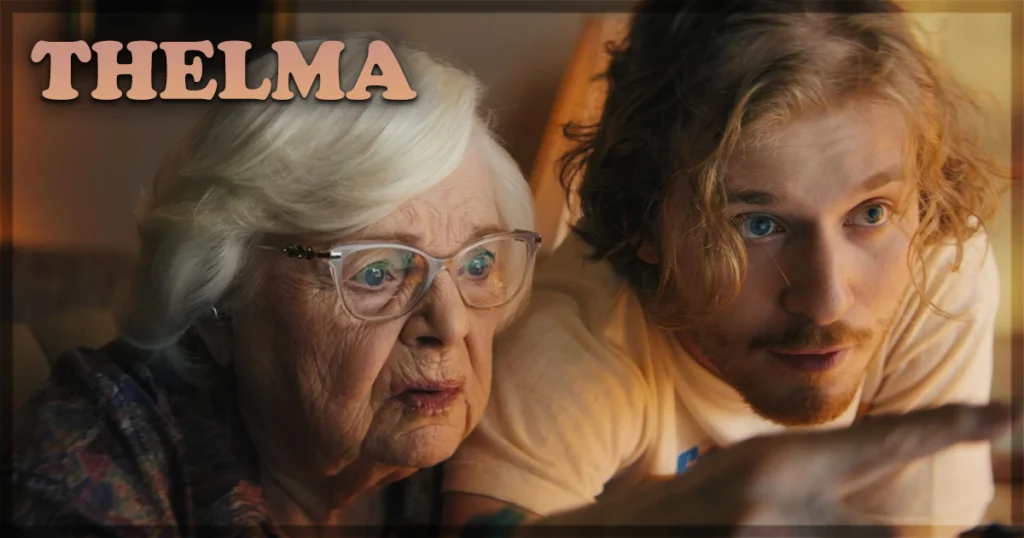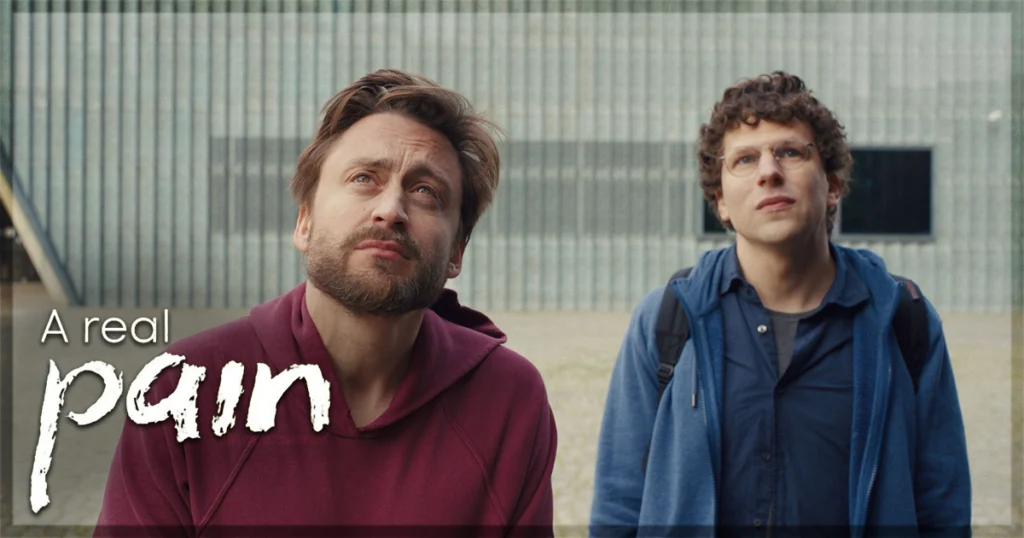Sundance thrives on a level of strangeness within their films. Some premises are so absurd one wonders if they can be successful. This year’s festival alone offered plenty of surrealist entertainment. Movies like Presence, Loves Lies Bleeding, and Freaky Tales delivered a level of hyper-stylized fantasy. It helped the festival to give audiences a communal experience to get weird. While each of those films delivered the goods, one film remained the strangest yet. Love Me delivered one of the most unique festival films with two big-name stars.
The film stars Kristen Stewart and Steven Yeun in a post-apocalyptic romance setting. The story follows a satellite (Yeun) and a buoy (Stewart) that fall in love after the end of civilization. Along the way, both the satellite and buoy uncover what it truly means to love someone and be human. This process includes a deep understanding of what it means to care for someone. To understand that fact, these newly sentient beings turn to social media for answers. Learning about the human experience is easier said than done for these synthetic beings. While a fascinating concept, the results turn out rather muddled.
In theory, the film’s 92-minute running time should offer a brisk pace. Oftentimes, the pacing feels languid. That is due to the screenplay co-written by the filmmaking team Sam & Andy Zuchero. Also, by directing the piece, viewers can easily see the messages they want to display. The overarching message focuses on sentient and non-sentient beings focused on technology. Such a message is definitely one that many of this generation need to hear today. The problem is that this message has been heard in several films over recent years. Love Me never once delivers a new perspective on the topic. That leads to frustrating results in the structure of the story.
Love Me is more than a rom-com between a satellite and a buoy
Love Me succeeds strongly in both the first and third acts of the story. The satellite and buoy have the equivalent of a romantic comedy, “meet-cute,” early in the film. These beings flirt with one another in their own unique and anti-human-like way. Both Stewart and Yeun sell these moments, delivering an awkward charm to every line reading. Their line deliveries are so incredibly charming that it makes what comes later feel quite disjointed. After both of these beings are in each other’s lives, both buoy and satellite’s journeys take an uninteresting turn. To uncover more about the world, they discover social media. That teaches both of these entities some of the wrong messages.
This section of Love Me is almost like an obsession, particularly for Buoy. That motivation plays as a blatant attempt in commentary on the black hole of social media. Buoy gets sucked in, obsessing over a particularly popular social media couple (also played by Stewart and Yeun in human form). That obsession takes the beings into an artificial, VR-adjacent-like world. While interesting, it never quite has the emotional impact one would hope for. The problem is that this part of the movie goes on for a long amount of time. It’s an interesting idea that doesn’t have the momentum one expects. The third act thankfully redeems some of these shortcomings, evolving into a live-action form.
Stewart and Yeun’s characters in Love Me evolve into a flesh-and-blood human relationship
Instead of just voices and Instagram videos, both Stewart and Yeun appear as themselves. The idea is that their relationship has evolved into an actual flesh-and-blood human relationship. Appearing as themselves offers a level of depth that the first two acts are sorely lacking. Yeun and Stewart’s relationship feels tangible, even if it includes some drama along the way. The problems of this part of the film primarily reside in the Buoy (Stewart) character. There is still a large amount of emotional immaturity within her that simply feels misplaced. Of everything the character learned over the film, by this point, it feels forgotten. Stewart believably sells these moments. The problem is that her emotional journey never has the satisfaction it strives for.
The satellite character serves as an audience conduit within this section. His frustration with the buoy’s actions feels entirely justified. To put it plainly, those moments move at a snail-like pace. We know where it’s going, making the build-up to the final another underwhelming piece of the film. It’s once the characters reconcile that the real heart of the story begins to shine. After all of their melodrama, the relationship takes a turn into feeling more genuine. It’s effective and will make some people wish those moments had come earlier. Once this section arrives, it gives these characters needed dimensions. Their narrative journey has turned them into actual human beings with feelings. It delivers an ending that feels much more satisfying on an emotional level.
Final thoughts on Love Me
Love Me is an overwhelming mixed bag of film. Its lively ambitions unfortunately exceed its grasp. The primary problem is that its message does not have anything new to say. While conceptually interesting, its point about society’s obsession with technology feels bland. It’s once Yeun and Stewart appear in human form, that an emotional honesty shines through. Both Zucheros show promise as writers and directors but struggle with unwieldy writing. A tightened script could have made this a classic waiting to happen. What we’re left with leaves lots to be desired.
Love Me will be available in theaters at a later date.
Did you get a chance to check out Love Me at Sundance? What did you think? Or are you waiting for it when it comes to theaters? Connect with us on X @MoviesWeTexted and share your thoughts.



